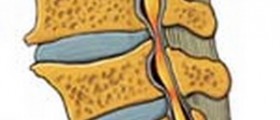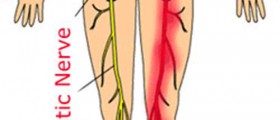
Nerve damage is not a condition per se. On the contrary, it is only a consequence of many different illnesses that affect various organs and organ systems in the body. Damage to different nerves is associated with various symptoms and signs. They differ drastically from patient to patient. Since nerves are essential for innervating muscles and in charge with many sensations their damage may either cause problems with muscle control or cause abnormal sensations. Even complete loss of sensation can occur due to severe nerve damage.
Clinical Characteristics of Nerve Damage
Symptoms and signs patients may develop practically depend on several factors including the location of the affected nerve and its type. Different illnesses may damage brain nerves and those located in the spinal cord or they may affect peripheral nerves.
In case autonomic nerves get damaged patients generally complain about inability to sense chest pain (which may cause silent heart attack etc), excessive sweating, lightheadedness, insufficient production of tears and saliva, constipation, bladder, bowel and sexual dysfunction.
Damage to motor nerves is characterized by muscle weakness and subsequent muscles atrophy, muscle twitching (fasciculation), tremor and sometimes paralysis.
And finally, if one ends up with sensory nerve damage, he/she will complain about pain and drastic alteration in sensitivity such as numbness, burning sensation, prickling sensation etc and may also develop problems with positional awareness.
It is also possible to suffer from a combined nerve damage when different types of nerves are affected.
Causes of Nerve Damage
Experts have confirmed more than 100 different types of nerve damage. In spite of such great number of different types of nerve damage, certain medical conditions cause nerve damage more.
Nerve damage is commonly seen in patients suffering from different autoimmune diseases (multiple sclerosis, myasthenia gravis, lupus etc). Furthermore, cancers may also affect nerves and cause their damage. Even treatment options for cancers (both, chemotherapy and radiation therapy) may induce damage to certain nerves. Nerves can be additionally damaged due to compression or trauma and injury.
One more frequent cause of severe nerve damage is diabetes mellitus. This metabolic disorder may affect each and every nerve in the body and cause its damage. Nerves also get damaged by nutritional deficiencies, intake of some drugs or accidental poisoning and intoxication. Motor nerve damage typically occurs in motor neuron diseases. And finally, infectious diseases may cause damage to these structures.
Nerve Damage Treatment
If damage to the affected nerves is reversible, the symptoms and signs can disappear once the underlying condition of the damage is brought under control.
Unfortunately, if damage is irreversible patients may only benefit from symptomatic treatment. It includes different treatments with two goals, relieving the symptoms and helping patients cope with them more easily.
Nerve pain is a common problem associated with many cases of nerve damage. Such pain can be alleviated with mild pain killers. However, if it is more intensive and practically unbearable, patients are prescribed more potent medications (opioids and tricyclic antidepressants). Even some anti-seizure drugs may help such patients.
And finally, additional treatment which may contribute to pain relief include complementary and alternative approaches such as acupuncture, meditation, biofeedback and hypnosis.















-Symptoms,-Diagnosis,-Treatment_f_280x120.jpg)
Your thoughts on this
Loading...